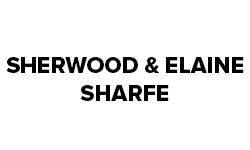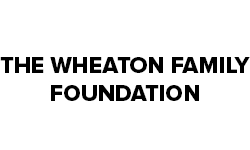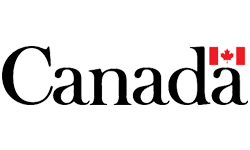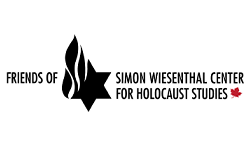Truth and Reconciliation Commission: Responding to the Calls to Action
Concentus Citizenship Education: Moving toward Reconciliation
Moving Forward… Taking Action…
This module supports teachers and school staffs who are ready to move forward and implement their plan of action to promote healing and reconciliation in their classrooms and learning communities. Concentus Citizenship Education Foundation has developed classroom resources that will support teachers in moving toward teaching about reconciliation within existing curriculum.
Concentus Citizenship Education resources are explored through five modules called action steps that invite participants to move toward reconciliation. In these action oriented modules participants will learn:
• how to move toward reconciliation by addressing specific Calls to Action related to education;
• about citizenship competencies that can build more positive understandings of the need for reconciliation to build a stronger Canada;
• about citizenship resources that support reconciliation actions and strengthen relationships among all cultures; and,
• about additional Concentus resources that support building capacity for social justice, inter-cultural understanding, empathy, and respect.
The module assumes that participants have some familiarity with the concepts explored in Module 1: Starting the Conversation. Reference will be made throughout this module to prior learning.
The information presented is intended to support the efficacy of classroom teachers and educational leaders in moving forward with their personal plans to include reconciliation teachings and actions in their daily work. Participants will learn about Concentus Citizenship Education Resources in a manner that models the teaching processes used in the classroom resources. This information acknowledges the Truth and Reconciliation Commission’s Calls to Action recommendation that asks educators to share “information and best practices on teaching curriculum related to residential schools and Aboriginal* history”.
This module uses the text of the original Truth and Reconciliation Commission document; thus, the term Aboriginal is used.

The Concentus Citizenship Education Foundation is a recognized centre of excellence for the development and promotion of citizenship and citizenship education.
The mandate of the Foundation is to educate and empower individuals to understand their rights and to be responsible, respectful, and participatory citizens committed to justice in Canada’s multicultural, pluralistic society.
Concentus Citizenship Education Foundation works with government agencies, educators, and other stakeholders to create Kindergarten to Grade 12 resources that are linked to Saskatchewan Social Studies curricula and recognized by the Ministry of Education.
Ongoing work of the Foundation focuses on the promotion and support to teachers using the citizenship education resources in the classroom.
Action 1: Getting started
What Reconciliation recommendations can individual teachers act upon?
In the first module, you learned about the Truth and Reconciliation Commission and explored what Reconciliation means to you. You learned that there are 94 specific Calls to Action that ask citizens to begin to think about how they will act to promote reconciliation within their respective area of responsibility. In reading the Commission document it may seem overwhelming and you may wonder what you can do to begin to move forward in education. What can this look like in your classroom? In your school?
Truth and Reconciliation Commission of Canada: Calls to Action
Let’s get to work.
Listed here are specific recommendations related to education as cited in the Truth and Reconciliation Commission of Canada: Calls to Action.
Recommendation 62
i. Make age-appropriate curriculum on residential schools, Treaties, and Aboriginal peoples’ historical and contemporary contributions to Canada a mandatory education requirement for Kindergarten to Grade Twelve students.
Recommendation 63
i. Developing and implementing Kindergarten to Grade Twelve curriculum and learning resources on Aboriginal peoples in Canadian history, and the history and legacy of residential schools.
ii. Sharing information and best practices on teaching curriculum related to residential schools and Aboriginal history.
iii. Building student capacity for intercultural understanding, empathy, and mutual respect.
Think about
Saskatchewan teachers are mandated to teach treaty education in all provincial schools at all grades. This is one step towards fulfilling the reconciliation recommendations. As teachers you are able to make decisions about how to infuse reconciliation actions and information within your classroom and the learning plan that students follow to explore outcomes and indicators.
Read through the listed recommendations above and on the following chart record:
- the specific teaching recommendations suggested for practice in your classroom;
- the specific teaching recommendations you currently practice in your classroom; and,
- the supports you need to help you move to incorporating more of the identified reconciliation recommendations.
Download Reconciliation Recommendation Recording Chart
Action 2: Discovering supports
What is the relationship between reconciliation and citizenship?
Educators have the power to inspire young minds, to encourage respectful and responsible citizenship and promote a commitment to justice. One of the Broad Areas of Learning in Saskatchewan education is to develop Engaged Citizens.
This action step module will ask you to begin thinking about what you are already doing in the classroom that links to reconciliation recommendations.
- Compare your current practices with your colleagues.
- How can you strengthen your existing work?
- Reflect on the specific recommendations for educators and make connections to citizenship education.
Look at the graphic organizer Finding the Connections between Calls to Action Recommendations and my Current Practice. Side A lists the recommended teaching practices identified in the Calls to Action. Use side B to reflect on the connections you currently practice when teaching citizenship education in the classroom and reconciliation. Share your reflections with a partner.
Background information:
The Concentus Citizenship Education Foundation was established by the Saskatchewan Human Rights Commission in 2012. It works to promote the importance of equality, equity, and diversity that is fundamental to good citizenship. Concentus partners with educators, students, communities, government, and other interested stakeholders.
In partnership with Concentus, educators from across Saskatchewan have co-constructed and vetted the K-12 Concentus Citizenship Resources which aim to:
- Educate and empower individuals to understand their rights,
- Encourage responsible, respectful, and participatory citizenship, and
- Promote a commitment to justice in a pluralistic society.
Achieving genuine reconciliation is a responsibility we all share.
According to Justice Murray Sinclair, Chair of the Truth and Reconciliation Commission, education provides one of the greatest hopes for repairing cultural attitudes, redressing the legacy of Indian Residential Schools, and advancing the process of reconciliation.
People for Education (2016)
Concentus Citizenship Education believes in the power of Educators to inspire young minds, to encourage respectful and responsible citizenship and promote a commitment to justice. Concentus resources will support teachers as they teach the citizens of their classroom about the history and legacy of residential schools in Canada.
In this short video clip, Judge Arnot, Chief Commissioner of the Saskatchewan Human Rights Commission, speaks to the importance of education in ensuring that every Canadian knows, understands and values their citizenship. Listen and record his thoughts mentioned in the video about rights, responsibility, and respect.
What will our students need to know, understand, and demonstrate in order to become responsible, respectful and participatory citizens ready to take up the challenge of genuine reconciliation now and in the future?
Use the graphic organizer or chart to record your thinking:
- What commonalities in teaching practices exist among your staff members?
- What new teaching ideas did you discover?
Finding the Connections between Calls to Action Recommendations and my Current Practice
The Concentus Citizenship Foundation has identified five critical or essential citizenship competencies that are made up of big, overarching ideas. Students explore the competencies and construct meaning of the overarching big ideas in the citizenship inquiries. These understandings are considered necessary for individuals to participate fully as respectful and responsible citizens. They are explored with increasing complexity from Kindergarten to Grade 12 in the citizenship resources.
Essential Citizenship Competencies
Enlightened
Historical events have an impact on today’s decisions and today’s understandings impact our perception and interpretation of historical and current events.
Empowered
Governance and public decision-making reflect rights and responsibilities and promote societal well-bring amidst different conceptions of public good.
Empathetic
Diversity is strength and should be understood, respected, and affirmed.
Ethical
Canadian citizenship is lived, relational and experiential and in Canada, requires understanding of Aboriginal, treaty and human rights.
Engaged
Each individual has a place in, and a responsibility to contribute to, an ethical civil society; likewise, government has a reciprocal responsibility to each member of society.
Read through these citizenship competencies.
- What knowledge, understandings, and demonstrations/actions could be included within each of the competencies?
- How many concepts have you identified on the previous Know, Understand, Demonstrate chart (Action 1)?
- How will exploration of these Essential Citizenship Competencies help to further the process of reconciliation?
The two charts below frame citizenship competency perspectives to guide students to think about issues connected to reconciliation.
Essential Citizenship Competencies: Kindergarten – Grade 4
Enlightened
I/We can discover how the past connects to the present.
Empowered
I/We can identify the rules and how they influence people.
Empathetic
I/We can understand and respect how others think and feel.
Ethical
I/We can see that we all have rights and responsibilities.
Engaged
I/We can take actions to make the world a better place.
Essential Citizenship Competencies: Grade 5 – Grade 12
Enlightened
I/We investigate the history and contexts of issues.
Empowered
I/We examine power – its sources, forms, and implications.
Empathetic
I/We seek and respect different points of view.
Ethical
I/We evaluate rights and responsibilities.
Engaged
I/We can take action that targets root causes.
Learn more about the Essential Citizenship Competencies at Rights, Responsibilities and Respect: Essential Citizenship Competencies
Taking Action:
Explore the chart connecting these big ideas to the citizenship competencies.
How do the big ideas strengthen your current citizenship practices noted in the graphic organizer in Action 1? How can instruction of the big ideas support teaching about reconciliation?
Action 3: Exploring Inquiries
What do reconciliation teaching practices look like in the Concentus Citizenship Education resources?
You are going to begin a jigsaw examination of specific inquiries in the Concentus Citizenship Education resources that illustrate the continuum of reconciliation understandings that students could explore from kindergarten to Grade 12. This will be done in the chart/organizer found on pg. 10 Continuum of Reconciliation Study Kindergarten to Grade 12.
The inquiries listed show examples of how students are invited to consider citizenship challenges and reconciliation concepts within the citizenship resources.
Teachers are invited to read and reflect upon the Invitation to Lead and Learn letter from Judge D. Arnot. If you accepted the invitation to teach about citizenship from a social justice perspective, what changes in practice would be required?
It is helpful to know that Concentus Citizenship resources are organized around the three Broad Areas of Learning. These areas have been re-configured to reflect a citizenship perspective by the Teachers Development Group so that teachers can see the connection to their daily teaching expectations. Each broad area of citizenship sustains the others and supports the development of participatory citizens committed to justice in a pluralistic society.
To see how the resources connect to curriculum, check out the Concentus Continuum of Study PDF.
Inquiry teaching explores big ideas that take time to develop understanding. The links below take you to the start of the inquiry in the Concentus classroom resources. Teachers are encouraged to read through the entire inquiry to get a sense of how the outcomes and indicators are developed throughout the inquiry.
From the inquiries listed below, chose a specific inquiry and use the graphic organizer to identify the concepts explored and how they contribute to reconciliation understandings. Share your understandings regarding the continuum of study.
- How does the continuum of study progress?
- How do student understandings contribute to reconciliation?
- What questions are student asked to consider?
Primary grade students examine different cultures looking for commonalities amongst them.
Grade 1 – Life Long Learning Citizens
Inquiry 1: Are cultures more alike or different?
Elementary students learn about the variety of governance levels in Saskatchewan and how they interact with one another which includes the governance structures of First Nations communities and consensus decision-making.
Grade 4 – Engaged Citizens
Inquiry 1: Are there similarities to groups? Are there certain ways to organize groups?
Middle Years students learn of privilege and marginalization, the Sixties Scoop, residential schools, and the impacts of the Indian Act.
Grade 6 – Engaged Citizens
Inquiry 1 and 2
Grade 8 – Engaged Citizens
Inquiry 1: What is Canada’s Identity?
What does it mean to be Canadian? How did we develop our identity?
High School students learn of the ideologies that allowed residential schools to exist. Students study the impact of the colonial ideology historically and currently. They examine the multiple changes to the Indian Act and the reasons for those changes.
Level 10 Citizenship Resources
Appendix D – Levels 10, 20, 30 Citizenship Inquiry Continuum
Level 30 Citizenship Resources
Appendix D – Levels 10, 20, 30 Citizenship Inquiry Continuum
Reconciliation Studies as explored in Citizenship Inquiries
Action 4: Classroom Connections
This next action step module will support your exploration of the specific classroom resources for your grade level. You will be choosing an inquiry that you would like to study with your students and learning how the specific reconciliation recommendations, identified in the graphic organizer, are developed in your chosen inquiry. You will also be encouraged to think about changes that you may need to make to make the learning more meaningful for your students.
What does this look like in my classroom?
Choose the specific classroom resources for your grade level. Follow the process used in the previous jigsaw to find how the citizenship inquiries assist you in teaching about reconciliation. A graphic organizer is provided to record your thinking.
Taking action:
- How might you strengthen the reconciliation connections? What other learning activities might you consider doing?
- What supports you will need?
- How will using Concentus Citizenship Inquiries change your classroom teaching?
- How will you create ethical space and develop cultural responsiveness in your classroom?
Background Information
Cultural Responsiveness: Honouring Multiple Perspectives
In order for these citizenship inquiries to be successful, it is critical that teachers support student exploration of citizenship in a culturally responsive manner. While cultural awareness is an important first step, the ultimate goal is to develop cultural responsiveness. Cultural responsiveness allows individuals to take what they have learned and use it to respond respectfully and appropriately in various contexts and situations. By validating the cultural knowledge and experiences that already exist in classrooms and communities, teachers are able to take approaches to teaching citizenship education that are strength‐based.
W. Ermine’s work explores the concept of ethical space where individuals move into shared space to explore topics that require ambiguity tolerance and open minds. Through careful and thoughtful preparation teachers and students are able to create “ethical spaces” in classrooms to consider comprehensive, multidimensional, topics that are presented in these citizenship resources. While exploring these topics, teachers can model respect for First Peoples through not only historical, but shared contemporary experiences. The concept of “we are all treaty people” can be used to create ethical space and to ensure that all of our students understand First Peoples’ sense of place and their own sense of place as reflected in the personal worldviews of their homes, classrooms, schools, province, nation and world.
Saskatchewan classrooms are a microcosm of citizenship realities that reflect the changing demographics of our province and provide unique opportunities to explore our relationships with one another in a safe, caring, and accepting environment.
These resources are designed to support Saskatchewan’s constructivist curriculum and assist teachers to form partnerships with students to think about citizenship challenges and opportunities, locally and globally. They support teachers to bring a philosophy of citizenship to life that brings agency to the importance of encouraging students and teachers alike, to respectfully acknowledge, respond to, and affirm diverse cultural ways of knowing, as well as to seek to understand differing perspectives.
Responsive teaching to promote student involvement
Diversity is central to increasing the richness of classroom discussion sparked by the inquiries. Alternate viewpoints play a role not only in strengthening communication skills, but also in expanding the experiences and thinking capabilities of individuals and groups. Teachers are challenged to develop a classroom culture where students feel comfortable enough to share their heritage and knowledge and where different experiences and worldviews are accepted without judgment and respected as legitimate.
Successful use of these resources depends on teachers recognizing the importance that culture plays in all aspects of learning and validating students’ connections of their learning within their culture. Classrooms must be places of trust that allow for thoughtful and respectful conversation. From Kindergarten to Grade twelve, students are developing skills that allow differing worldviews to be understood while encouraging cooperative, working relationships to exist. Sometimes discussions may become uncomfortable, but if managed constructively, they can provide rich learning experiences and achieve collaborative outcomes.
Teachers become facilitators connecting inquiries to current realities
Citizenship exists in the real world. The inquiries provide opportunities for students to make connections to their realities, their cultures, and their lived experiences. It is anticipated that teachers will learn as much about their students as students are learning about the identified outcomes. When teachers connect classroom explorations of citizenship issues to real life citizenship examples, they support students in developing the understanding that citizenship responsibilities require constant vigilance and mobilization.
Teachers act as facilitators, guiding students to surface themes, and effectively connect their culturally and community‐based knowledge to their developing citizenship understandings. Students are encouraged to add their questions to the inquiries, work collaboratively to discover information, and apply their learning in authentic contexts. They are invited to demonstrate their understanding of citizenship in ways that support their learning strengths while taking risks in areas where they are still developing understandings.
Teachers play a valuable and critical role in bringing these resources to life. It takes courage to allow students to authentically grapple with citizenship challenges within the context of their personal culture and worldview, but it is within those interactions, that citizenship, nationally and globally, will be strengthened.
Reconciliation Study for my grade level
Action 5: Community Connections
How will you invite parents/caregivers and other community stakeholders into the discussion?
As you can see the Concentus Citizenship Education resources and the reconfigured learning outcomes support educators to begin the steps toward reconciliation, create dialogue, and are already contained in Saskatchewan Ministry of Education Social Sciences outcomes.
The developed inquiries make citizenship connections and reconciliation teaching intentional and cause both teachers and students to question and challenge colonial thinking and the lenses we traditionally use to examine history. Teachers schools, and school divisions are ready to address the Calls to Action and this resource is available, is connected to curriculum, and is ready to help you begin.
Reconciliation and the concepts explored are inter-connected.
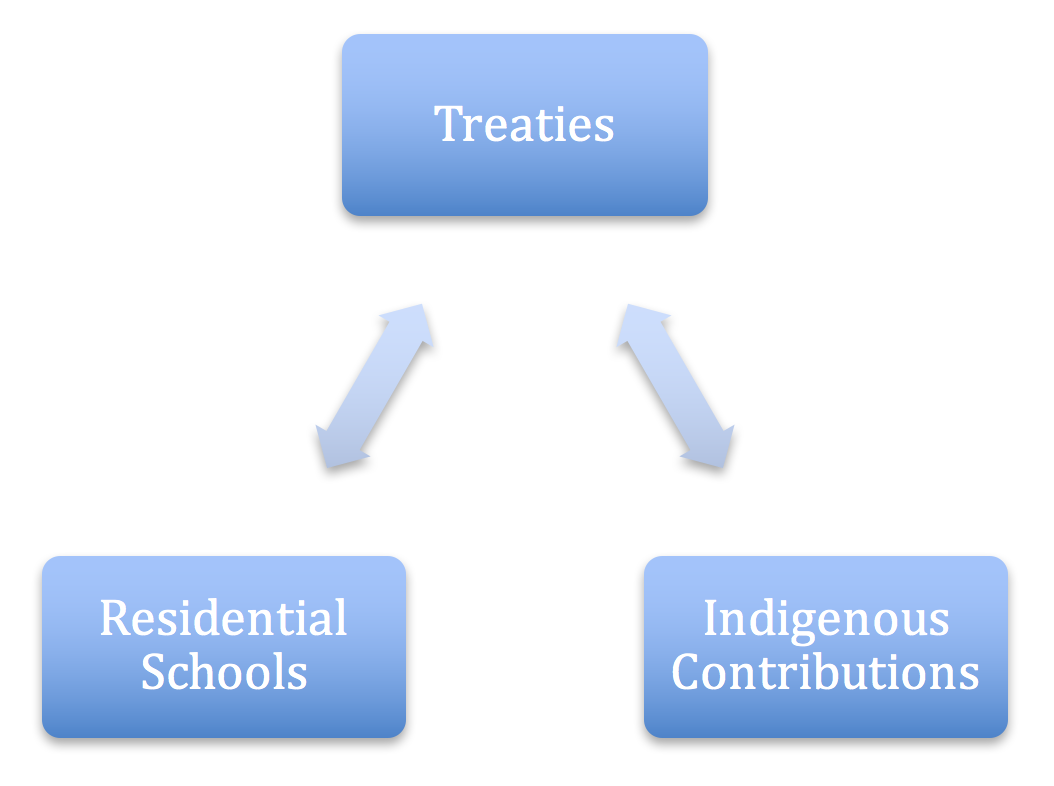
The Calls to Action ask educators to use age appropriate curriculum, Kindergarten to Grade 12 and teach about reconciliation from a social justice perspective that builds capacity for intercultural understanding, empathy, and mutual respect.
- How will you invite parents/caregivers and other community stakeholders into the discussion?
- Additional tools to support you, available on the Concentus website, are noted in the following chart.
Concentus Citizenship Education Resources
Name of Resource
Essential Citizenship Competencies (ECCs) Document
Overview
• Overview of need and components of Citizenship Pedagogy
• Explanation of Essential Citizenship Competencies
• Connection to Sk. Curricula
• Appendix of outcomes linked to Broad Area of Citizenship by grade level, useful for instructional planning
Target Audience
• Citizenship Stakeholders/Champions
• Provincial stakeholders i.e. government, business, community support agencies
• School Division personnel
• School based Administration
• Teachers
Citizenship Education Classroom Resources
• Grade level citizenship inquiries
• Specific instructional plans• Connections to Sk. Curricular outcomes
• Additional inquiry and resources supports
• Teachers
• School Division personnel
• School Based Administration
• School Board Members
Big Ideas Correlation with ECCs Continuum
• Summary of Big Ideas studied in each student developmental level (primary, elementary, middle years, high school) correlated with the ECCs
• Links Big Ideas to ECCs
• Assists with instructional planning
• Citizenship Stakeholders/Champions
• Citizenship Stakeholders/Champions
• Provincial stakeholders i.e. government, business, community support agencies
• School Division personnel
• School based Administration
• Teachers
Citizenship Education Learning Community Resources
• Brochures to explain the concepts and components of Citizenship Pedagogy
• Targeted for specific stakeholders so can stand independently or scaffold to increase Citizenship Pedagogy understanding
• Citizenship Stakeholders/Champions
• Provincial stakeholders i.e. government, business, community support agencies
• School Board members
• Parents/Caregivers, SCCs
• Students: Elementary and High School
• School Community Partners
Courageous Conversations Document
• Précis of six current citizenship challenges (Holocaust (Shoah), Indigenous Cultures and Awareness, Addictions and Mental Health, Disability, Gender, Race)
• Background information and current status of each citizenship challenge
• Citizenship Stakeholders/Champions
• Provincial stakeholders i.e. government, business, community support agencies
• Teachers
• School Based Administration
• School Division personnel• Parents/Caregivers
www.concentus.ca
• Current and upcoming Citizenship news and events
• Orientation to Citizenship Pedagogy and resources
• Access to Citizenship resources
• Access to citizenship learning community
• Citizenship Stakeholders/Champions
• Provincial stakeholders i.e. government, business, community support agencies
• School Division personnel
• School based Administration
• Teachers
• Parents/Caregivers
© 2023 Concentus Citizenship Education Foundation Inc. All Rights Reserved.



